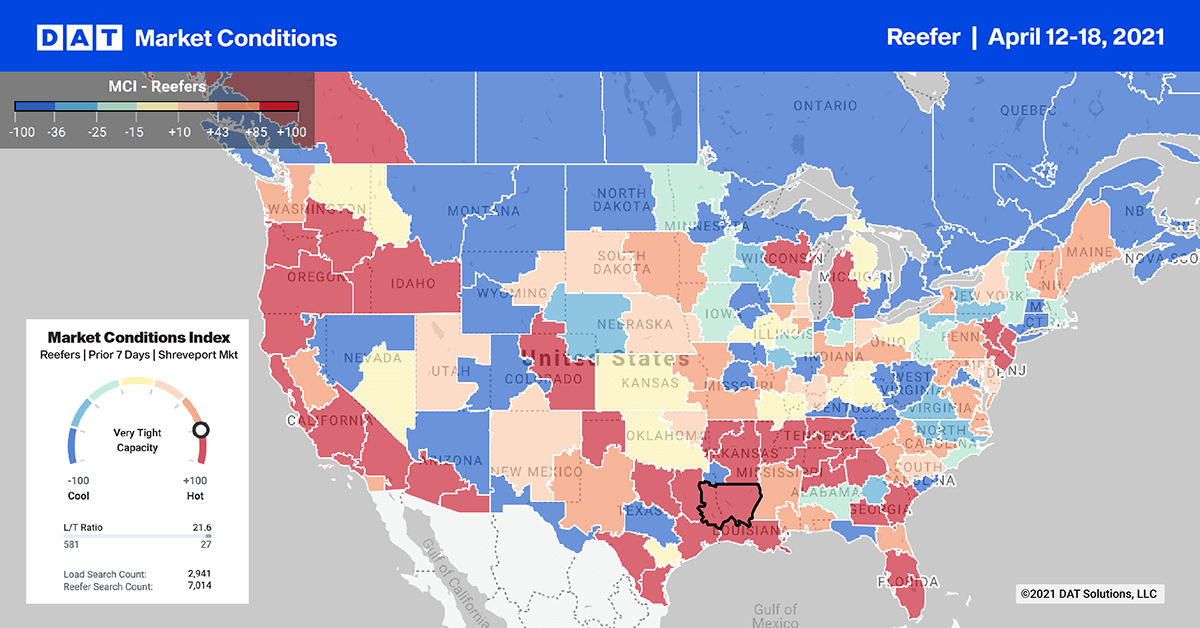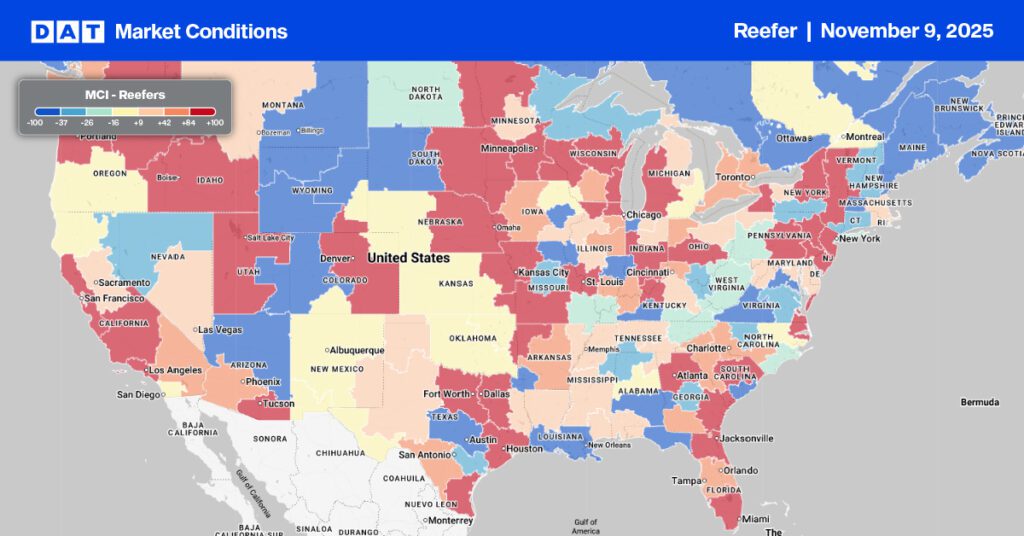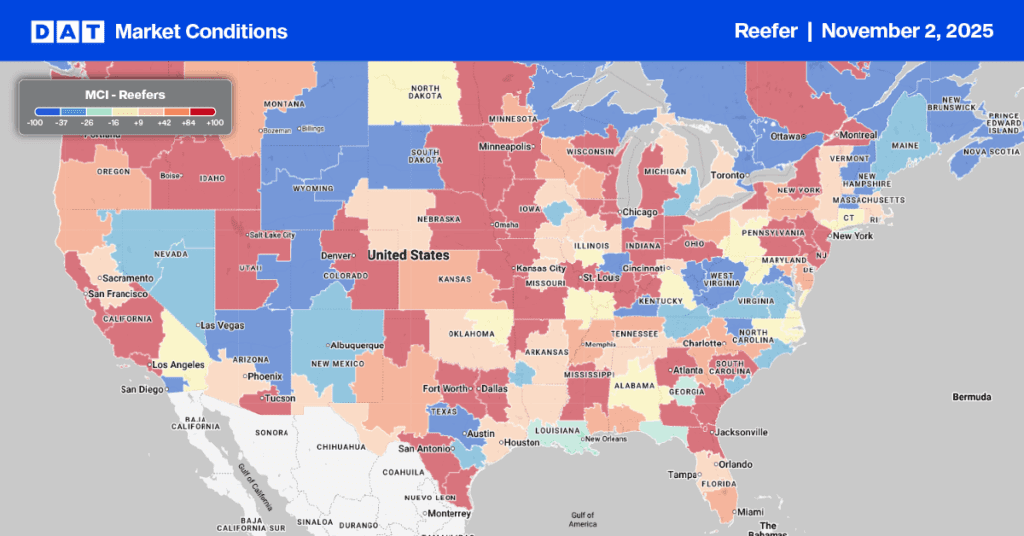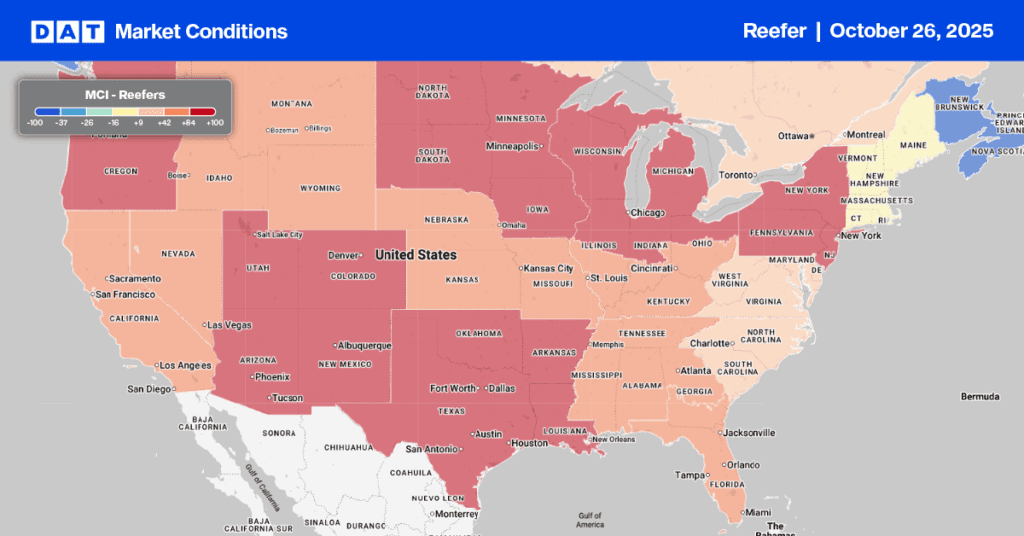Produce season is underway in the south. Strawberries in North Carolina and onions in Georgia are beginning to ship in serious volumes.
As the fourth largest national strawberry producer, North Carolina grows 1,100 acres of strawberries. Local growers are optimistic about the 2021 season despite the recent hard frost threatening the plants’ tender blooms. Growers in this region are already finding capacity tight.
According to the USDA, there’s a reported shortage of trucks for sweet potatoes in the Wilmington market. Spot rates in this market were up $0.13/mile last week to $2.15/mile on average. However, rates went as high as $4.20/mile for loads on the 608-mile run to New York city.
Carriers were in short supply to haul potatoes in the San Luis Valley in Colorado and vegetables and melons in the Central and South markets.
Reefer loads out of Miami were averaging $2.28/mile last week but went as high as $2.79/mile for loads to New York city. That’s almost $1.00/mile higher than this time last year.
Find loads and trucks on the largest load board network in North America.

All rates exclude fuel unless otherwise noted.
Reefer load posts in the top 10 reefer markets dropped last week recording a 5% w/w decrease. However, capacity tightened with a $0.02/mile increase to an average of $2.58/mile.
- Atlanta’s load post volumes dropped 9% w/w and outbound capacity tightened with a $0.01/mile increase to $2.71/mile
- Miami’s capacity tightened with a 9% w/w increase in volume and spot rates increasing $0.10/mile to $2.32/mile
- Lakeland, FL, capacity tightened with a 5% w/w increase in volume and spot rates increasing to $2.09/mile


